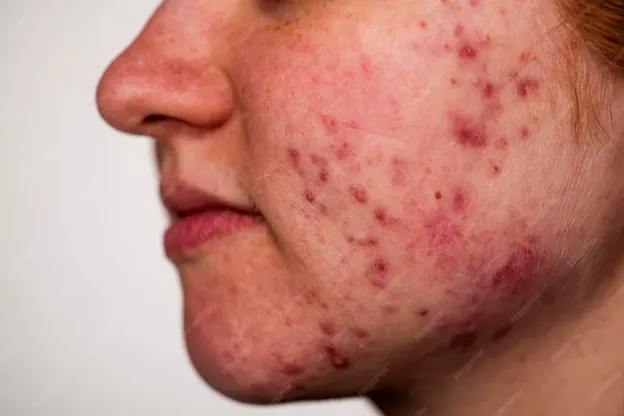Medical Dermatology
Treating Skin Diseases and Disorders
Skin Conditions Medical Dermatology Can Help With
Your skin, hair, and nails may be affected by many different issues. That’s where medical dermatology comes in. Here are some of the causes:
- Hypersensitivity: These concerns occur when the skin reacts too strongly to substances, such as food, dyes, and medications. Common examples include allergic rashes, hives, and drug reactions.
- Infection: These diseases are caused by bacteria, viruses, fungi, or parasites invading the skin. Examples are cellulitis, warts, ringworm, and scabies.
- Hormone imbalance: Skin problems can arise when hormone levels shift or fluctuate. Typical examples include inappropriate hair growth and thyroid-related nail changes.
- Environmental: External factors like sunlight and temperature extremes can damage the skin. Sunburn, heat rash, chafing, and chapping are common cases.
- Metabolic: Some skin problems can be signs of underlying health conditions involving imbalanced chemicals in the body. For instance, diabetes may cause foot sores or darkening of the skin creases, while liver or kidney disease may lead to itching and discolouration.
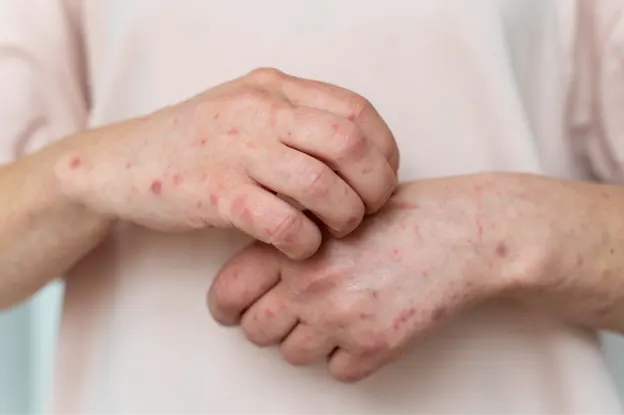
Itchy Rash
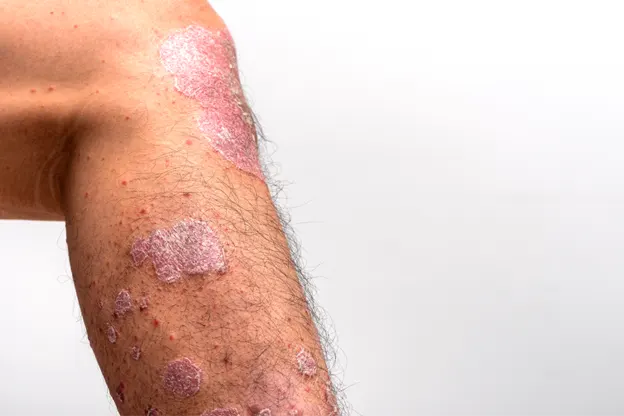
Psoriasis
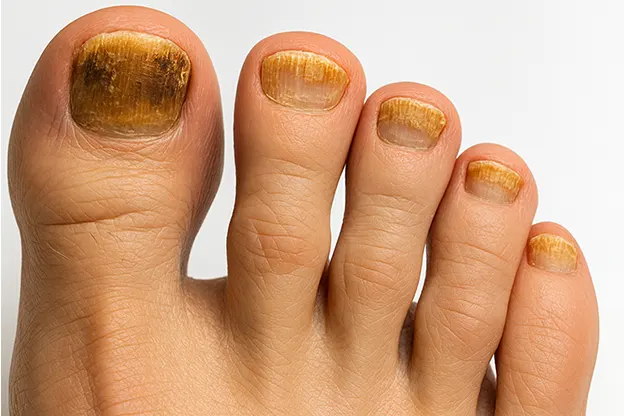
Nail Infection
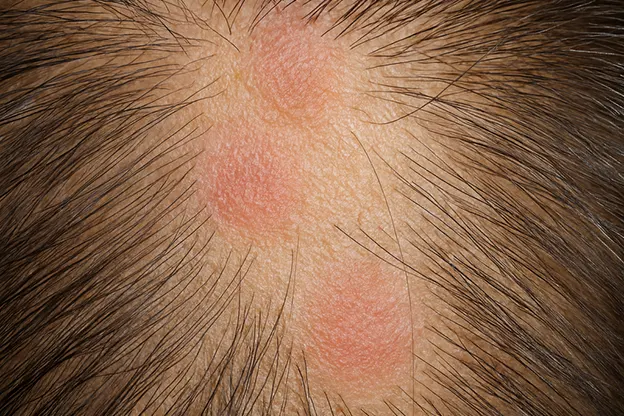
Scalp Inflammation and Disordered Hair Growth
- Nutritional: These skin conditions develop when the body lacks certain vitamins, minerals, or nutrients. Examples are nail changes from protein or iron deficiency, brittle hair from zinc insufficiency, and dry, rough skin from low essential fatty acid levels.
- Autoimmunity: These skin disorders happen when the immune system mistakenly attacks healthy skin cells or related structures. Examples include the butterfly rash seen in lupus, white spots caused by vitiligo, and patchy hair loss from alopecia areata.
- Hereditary or inborn: Some skin problems may be passed down in families or present at birth. Common examples are certain birthmarks and very dry skin caused by ichthyosis.
- Multifactorial: These skin issues result from a mix of several causes, such as genetics, environment, and lifestyle. Cases include acne, eczema, psoriasis, and rosacea.
- Skin cancer: This serious skin condition occurs when abnormal cells grow uncontrollably. Tumours may spread to other organs if untreated. Types include basal cell carcinoma, squamous cell skin cancer, and melanoma, among others.
Some skin blemishes may not have a clear cause, which is why a specialised skin doctor must be consulted for these problems. Patients visiting Dr Thiru’s Liverpool or Chester clinic can trust they’ll receive a careful assessment of their medical history. The information gathered helps guide effective, tailored care for each skin, hair, or nail concern.
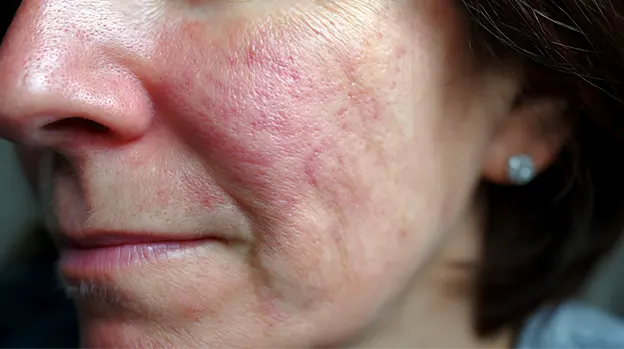
Rosacea
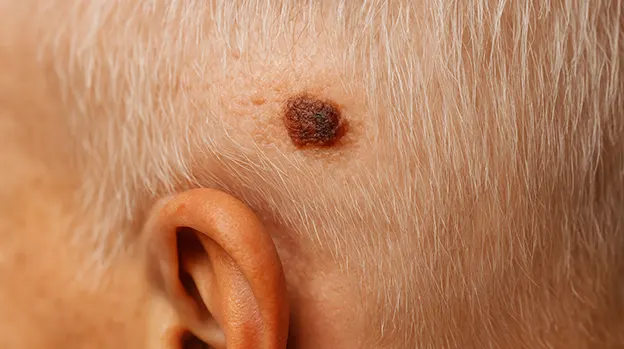
Scalp Cancer
Ways Medical Dermatology Can Help You
Whether you visit our Liverpool or Chester clinic, you’ll have access to a wide range of medical treatments, customised to your needs and personal goals. Services include the following:
- Topical therapies: These skin-applied treatments include medicated solutions, creams, lotions, ointments, or gels designed to address inflammation, dryness, infections, and other issues exactly where they appear. Topical remedies work well for mild skin conditions and some slow-growing skin cancer types. They can also support more intensive regimens if needed.
- Oral medications: These therapies include medicines taken by mouth to control more widespread or severe skin problems.
- Minimally invasive procedures: These gentle, in-office treatments use non-surgical methods, including injections, chemical peels, and microneedling. Stubborn warts, excessive sweating, acne, actinic keratosis (pre-cancer from sun damage), and some inflammatory conditions respond well to these techniques.
New patients can expect prompt evaluation, access to prescription medications, and direct consultation with Dr Thiru and his expert team. During the appointment, we’ll provide a thorough assessment, create an individualised treatment plan, and walk you through follow-up steps.
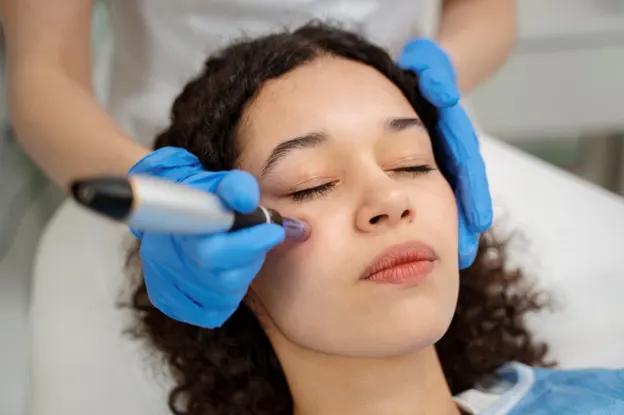
Microneedling for Acne
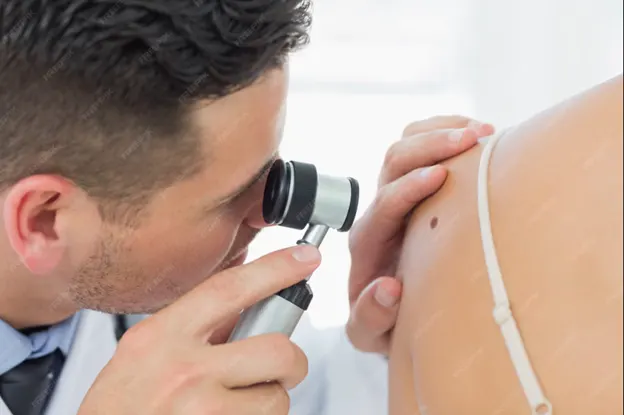
Skin examination
Medical Dermatology – Frequently Asked Questions
Here are some frequently asked questions about medical dermatology:

